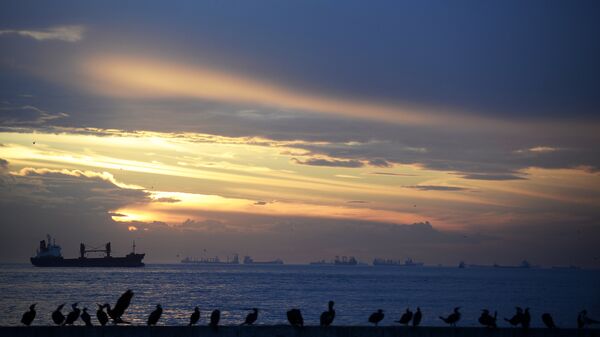SOCHI (Sputnik) — Russia attaches great importance to increasing cooperation within the framework of the Black Sea Economic Cooperation Organization (BSEC) and firmly stands for keeping its work non-politicized, Russian Foreign Minister Sergei Lavrov said Friday.
"Russia, standing at the origins of the BSEC, attaches great importance to increasing cooperation within the organization and consistently advocates a non-politicized nature of its work, " Lavrov said at the opening of the BSEC Council of Ministers of Foreign Affairs meeting in Sochi.
On Friday, the foreign ministers of 12 BSEC member states are convening for a biannual meeting in the Russian resort city of Sochi. The meeting is set to focus on mutual economic and political initiatives. With both Russia and Turkey being BSEC members, the summit is serving as a venue for the first high-level meeting between Russian and Turkish top diplomats since relations between the two countries deteriorated following the downing of a Russian jet over Syria in November 2015.
"For nearly a quarter century of fruitful activity of the organization, it has established itself as a popular platform for the progressive development of multifaceted cooperation… I hope that today's meeting will be held in a constructive businesslike manner," Lavrov added.
BSEC was launched as a regional initiative, with Turkey’s lead, in 1992 at the Istanbul Summit. In 1999, BSEC was officially transformed from an initiative into a regional cooperation organization, now comprising 12 member states, including Albania, Armenia, Azerbaijan, Bulgaria, Georgia, Greece, Moldova, Romania, Russia, Serbia, Turkey and Ukraine, as well as 16 observers and 15 sectoral dialogue partners.



